



41,949,000 SEEDBALLS DISTRIBUTED SINCE SEP. 2016

Low cost & highly efficient forest regeneration.
JUST THROW AND GROW!
charcoal dust
+ nutritious binder
tree seeds in a
protective capsule
low cost
afforestation
Low cost & highly efficient forest regeneration.
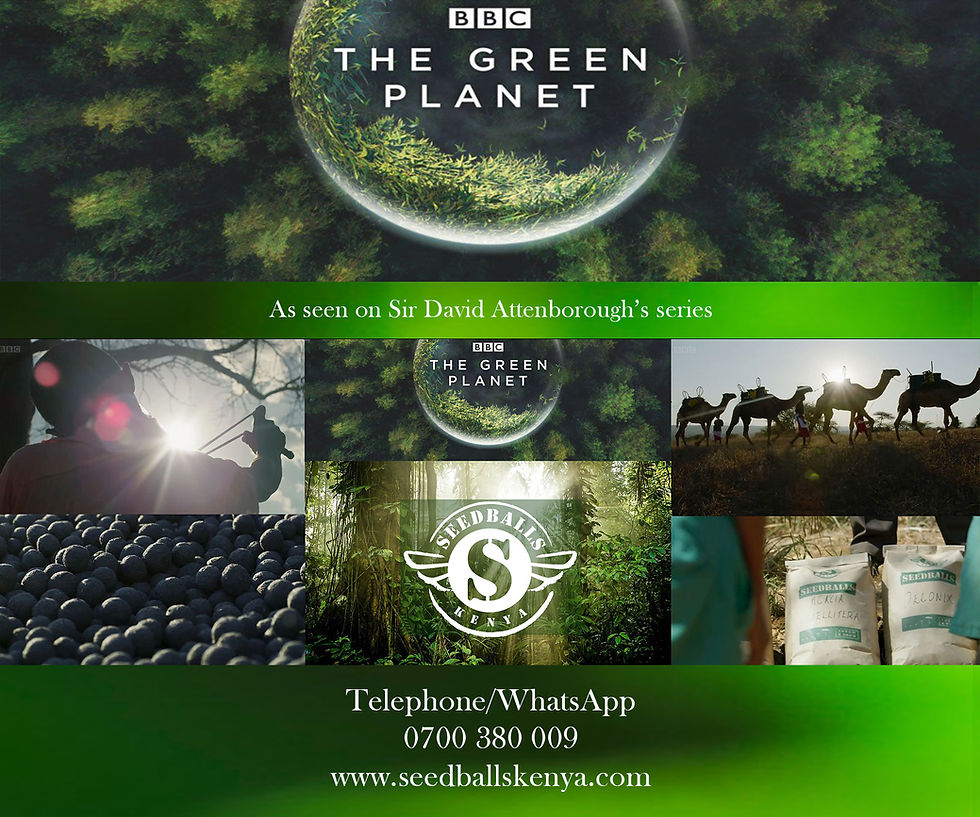
SEEDBALLS KENYA
Seedballs Kenya is a collaboration between
Chardust Ltd & Cookswell Jikos.
Seedballs Kenya has pioneered a method of mass producing seedballs for low cost and efficient reintroduction of trees and grass species into degraded areas in Africa.
Seedballs are inexpensive and can be easily dispersed over large areas which are often hard to reach. Our indigenous seeds, supplied and certified by the Kenya Forestry Research Institute (KEFRI), are not treated or altered in any way.
Simply put, we are giving Mother Nature a helping hand by protecting the seeds from predators and sun until the appropriate natural environmental conditions trigger germination.
Direct seeding reduces transplant shock and helps the young trees grow stronger roots which inturn helps them grow into stronger trees. We focus on the rehabilitation of land so damaged by man's activity that natural reforestation is unlikely or not possible at all.
Using seedballs, the reintroduction of tree species that have been partially or completely removed from their original environments is as natural a process as can be undertaken.
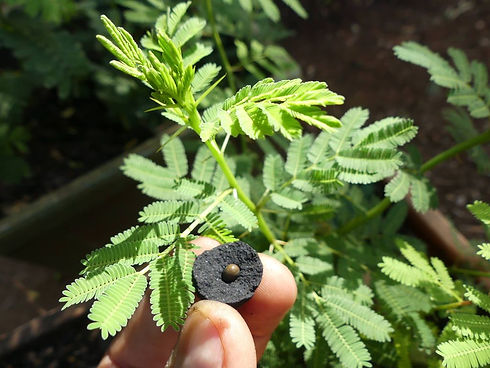
What is a Seedball?
A Seedball is simply that - a seed inside of a ball of charcoal dust mixed with some nutritious binders. We are focusing on helping reduce the costs of planting various useful indigenous plant species (mostly trees and grass) in Kenya.
The biochar coating of the ball helps protect the seed within from predators such as birds, rodents and insects and extremes of temperature until the rains arrive! Once soaked, the seedball will help retain and prolong a moist environment around the seed to encourage germination.
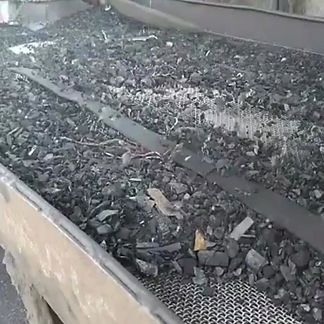
CLEANING THE ENVIRONMENT
Discarded charcoal waste is collected from waste piles, helping to clean the environment.
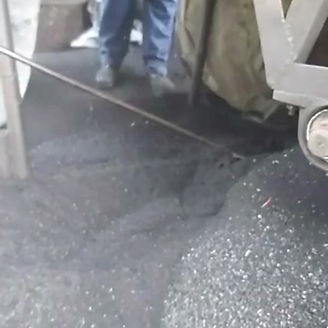
PREPARING THE CHARCOAL
The charcoal dust is sieved, cleaned, milled & nutritious binders are added.
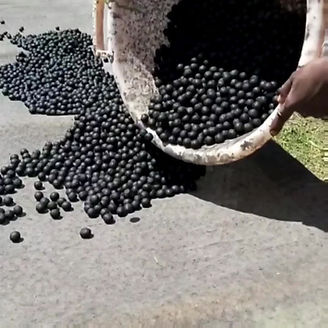
SEEDBALLS ARE CREATED
Indigenous tree & grass seeds are sourced & certified by KEFRI.

Eco Friendly &
Natural
- 100% Natural and 100% GMO free
The tree seeds we use are all sourced from the Kenya Forestry Seed Center who has a stock of seed of about 220 tree species collected from more than 600 localities (provenances) around Kenya. We use this provenance data to guide us in our seed distribution efforts.
- Natural organic seed coating
We use salvaged charcoal dust from urban charcoal vending site in Nairobi- soluble nutitious organic binders promotes successful germination.
- Recycled packaging
We support local small businesses. We source all of our paper bags & packaging materials locally and our printing is done by a small start up company in Nairobi.
- Low carbon manufacturing
Our manufacturing process is low energy and fossil fuel free.
- Eco-friendly marketing
We focus on online marketing to reduce use of paper waste.
We assume the role of missing seed-producing 'Mother Trees' and leave nurture to nature.
Seed
Germination
Seed germination rates in the wild vary widely within species. Some tree seeds, like the Nandi Flame and Siala (Markhamia) require little more than a couple rain showers within a week to sprout. Acacias are rather different, with most species adopting a more conservative approach evolved for harsher less predictable dryland environments.
Acacia seeds are produced in vast numbers and normally have a self-protective dormancy period. Typically the seed does not expect to fall off the tree and find moist fertile soil immediately.
It's outer coating is tough and resilient and the life within is designed to be triggered into germination by appropriate external conditions, such as a week or two of contact with moist soil, heat and chemicals from fire, acids from browser's stomachs or within dung, and external nicks and scratches.
Tree nurseries commonly stimulate acacia seeds to germinate by prolonged soaking, sometimes even in boiling water and/or by nicking (scraping) the bottom of the seed. Some seeds even respond to brief immersion in concentrated sulphuric acid. Batch-wise preparation of seeds in this fashion is suitable for the controlled environment of a tree nursery. It is not recommended to 'trick' acacia seeds into germination when seeds are distributed back into the wild over large areas of unprepared wilderness land with no guaranteed water supply.

DONATE A BAG TODAY
We are partnering with a select 6 organisations that are active in conservation programs within Kenya.
The organisations below are eager to receive your donated seedballs and have committed with us to distribute them within their areas of activity that have the greatest need for reforestation.
Let's reduce CO2 & re-green Kenya together!
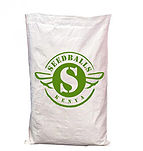
Why Use Our Seedballs?
Seedballs are inexpensive.
Seedballs do not require tilling.
Just Throw & grow!
Large quantities of Seedballs can be easily dispersed over wide areas that are often hard to reach.
Biochar coating protects the seed within from predators, such as animals & birds, & extremes of temperatures.
The coating protects the seed until the first rains & then provides a moist environment to encourage germination.
The Biochar coating contains soluble nutritious organic binders that promote successful germination.
Seedballs can be distributed at any time of year and will wait until the first rains to start germination.
Direct seeding with Seedballs results in no transplant shock that is often seen when using plastic bags for planting.
Seedballs allow long healthy tap roots, unconstricted by plastic bags. Long healthy tap roots produce deeper, more robust plants that are also more drought resistant.
Our Seedballs contain indigenous tree & grass seeds, approved & certified by KEFRI that have not been pre-treated in any way.



